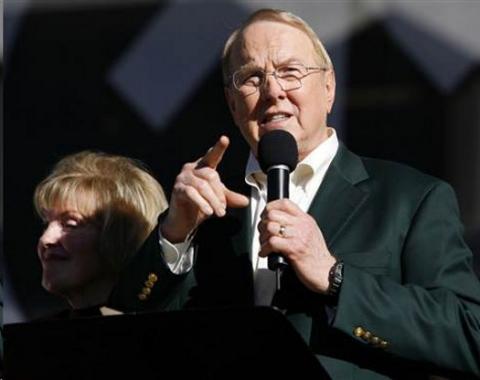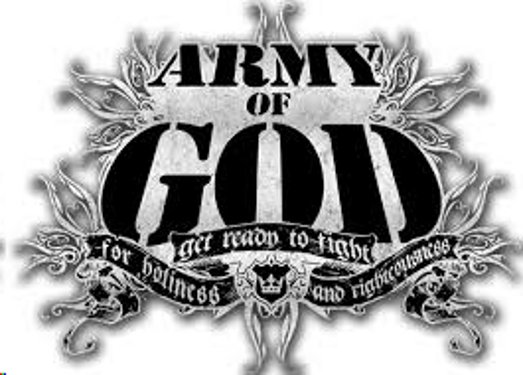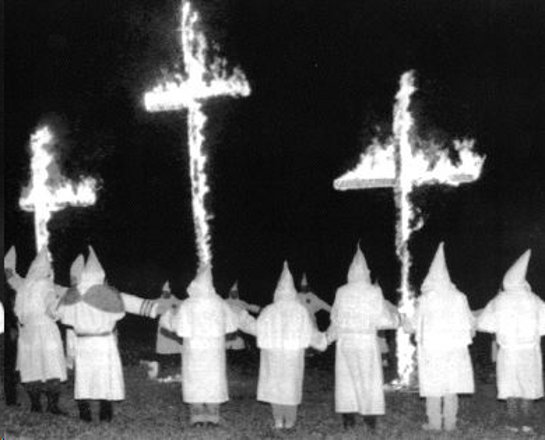Christian Extremists and Homegrown Terrorism

In 1986, Dr. George Tiller’s abortion clinic was firebombed. In 1993, Shelly Shannon, member of the Army of God, shot Dr. Tiller in both arms outside his clinic. During her prosecution, she stated there was nothing immoral about her attempt to exterminate Tiller. On her attributed wing of the Army of God website it reads this quote from Genesis: “Whoso sheddeth man's blood, by man shall his blood be shed:
for in the image of God made he man.” Dr. Tiller lived for 16 more years until Scott Roeder summarily executed him at point blank range as the doctor ushered at a local church. Roeder’s roommate said that he and Roeder considered themselves members of the Army of God.
Before the rabbit hole is sampled, analyzed and conclusively wrapped up, perhaps it’s best to offer an acceptable definition of Extremism. For the benefit of this exploration, Extremism is best connoted as the actions or ideologies of individuals or groups who take a political idea to its limits, regardless of unfortunate repercussions, and show intolerance toward all views other than their own. An Extremist is the person who advocates the use of force or violence and embodies the connotation pre-depicted.
Here are the questions that must be asked: What is a Christian Extremist? What is the history of Christian Extremism in America? Why does the military care about Christian Extremism? Why did they subsequently stop caring and what does this mean about the double standard of Christian Extremism?
John George and Laird Wilcox’s book American Extremist uses 22 identifiers for recognizing extremist enclaves, which is mercifully collapsed into a list of seven key characteristics here: Unresponsive sweeping generalizations; dualism worldview; assumption of moral superiority; doomsday thinking; emphasis on emotional responses; and advocacy of double standards.
Unsurprisingly, this list prompts unsettling self-diagnoses. It’s not uncommon practice to pass off opponents and critics as evil or allow emotions to trump reason. Heck, that’s politicking 101. Rest easy, occasional lapses into emotionally-driven tirades doesn’t qualify as extremism (although it could be argued that everyone is partially extreme about something: the greatness of Lionel Messi, poppy seed bagels and so on). The difference between enraged bellowing and Extremism is best delineated in this quote about Extremism from, surprisingly, the Department of Defense: “As a caution, we are all fallible human beings, and some of us may resort to these behaviors from time to time without bad intentions. With extremists, these lapses are not occasional; rather, they are habitual and a strongly established part of an extremist’s character.” Think McCarthyism.
Disclaimer: Before reading the following analysis, be aware that the ensuing practice is performed without any consideration to faith. As a result, the analysis may read harsh, especially to practicing Christians. With the variable of faith in play, some of these actions are more reasonable to undertake or condone.
When slid under George and Wilcox’s microscope, the Christian Right appears securely within the confines of American Extremism. This isn’t coincidental; the two researchers included the Christian Right intentionally as a case study. Here’s why: dualism, a popular identifier of Extremists, is easily recognized within Christian Right ideology. The dualist worldview of black/white or good/evil fits quite well into the god/satan; hell/heaven; and angel/demon dichotomy that reigns in scripture and frequents the binary logic of Christians (there’s good, evil and no in between) often invoked by the Christian Right.
Dualists frequently mistake similar for same (this person shares my religious beliefs therefore must share my political/moral/economic sentiments) and stumble into logical fallacies when asked to back assertions while ignoring contradictory information (fossil records and carbon dating). As a practicing member of Christianity, the threat of dualism is subverted by the continuum of one’s own path with Christ of faith. When a religious pocket transitions into dualism, Extremism reigns. Think Westboro.

Extremists tend to have a penchant for lawlessness; the Christian Right is no different. God’s law supersedes the law of man, and when man’s law ignores or flaunts god’s law (marriage equality, pro-choice) the Christian Right is indignant and riled. This sense of superiority gives birth to victimhood, the idea that the code of ethics adhered to by the Christian Right is under assault, or persecuted. Such indignation tends to lead to doomsday thinking (beware the wrath of God for such lawlessness) and violent acts performed in the name of God (bombing of abortion clinics). Extremism, unlike someone’s extreme love for poppy seed bagels, borders and sometimes spills into violence.
Propaganda plays an integral role in Extremism and more radical ideologies. The use of propaganda (heavily metaphorical and symbolic imagery that tells people how to think) thrives on Facebook, especially on Christian Right pages. The cross; hands in prayer; lambs; links between military and religion, all tend to inform people how to think instead of providing the means for viewers to think clearly. To the credit of the Christian Right, the social network excels in telling people how to think and preventing people from thinking for themselves (it’s how they generate revenue). And so the Christian Right’s usage isn’t outside the norm. There is a bigger issue at play, however. Propaganda isn’t education — it’s manipulation on a mass scale.
Let’s pause for the history of Christian Extremism in America.
Christian Extremism isn’t an unknown practice. For years, Christian Extremists (some mentally stable, others unstable) have bombed abortion clinics, assaulted pro-choice doctors and attacked homosexual on morally just grounds. Christian Extremists have grown radical enough for terrorism scholar Aref M. Al-Khattar to categorize several Christian groups as far right-wing terrorists.
There are many such Christian Right militant groups in America, but the most known and most active are as follows: Westboro Baptist Church, Ku Klux Klan, The Covenant, The Sword and The Arm of the Lord (CSA), Defensive Action (aka Army of God), and the Freemen Community. The Klan and Westboro’s abhorrent acts are well documented, but the other groups aren’t as infamous. The CSA was a prominent far-right paramilitary Christian group until they were raided and arrested by the FBI in 1985. Army of God was behind many of the attacks on abortion clinics, wielding force and violence to enforce their anti-abortion and anti–homosexuality causes. The Freemen hail from Montana, and were notorious for attempting to use counterfeit checks to stock their armory and fund their activities. In 1995, the Freemen found themselves in the same FBI quagmire as the CSA, and after many days of negotiations surrendered and were promptly arrested.

And now we return to identifying the characteristics of an Extremist.
Double standards rest snugly next to the dualist mindset. If someone adheres to the us/them and/or good/evil paradigm, it follows that what applies to them doesn’t necessarily apply to us and vice versa.
The Christian Right’s use of the double standard shapes public perception of more violent rhetoric and actions as outlandish, but not necessarily extreme. Christianity dominates American culture, allowing the more polemic enclaves to operate under the guise of conservatism and moral rigidity. From the perch of American Christian culture, linking these Christian enclaves (the Christian Right) with their Islamic or Jewish equivalents is unfathomable, even though each represents a hyper-conservative take on their religious structure.
What results is a double standard: the Christian Right’s conservative morals (within the context of American culture) differ from other religions’ conservatism and morality (within the context of Zionism; or the Quran; or the administrations of Joseph Smith). Recently, (and oddly) this double standard was undermined by the most unlikely organization: The Department of Defense.
In mid-2013 a contentious report surfaced within the DoD labeling the Christian Right as Extremist and categorizing their members under the same umbrella term as jihadists and known terrorist cells. The inflammatory Extremist label came from a report commissioned by the Department of Defense and performed by the Southern Poverty Law Center.

The report hardly summarizes the military’s philosophies toward Christianity. Forty-nine percent of all Department of Defense members rally under the Christian flag, with slightly over 17 percent of the DoD identifying as evangelical Christians (conversely, nearly 63 percent of military chaplains are evangelicals). Despite the public outcries regarding Obama’s anti-Christian crusade, military ranks are swollen with Christian membership. To criticize Christianity denies the military nearly half of its recruits. And the military is in no shape to drop its recruiting numbers.
Regardless of the DoD’s position on the Christian Identity (perhaps the military heads are the Christian Right behind closed doors, but there isn’t much evidence to support that theory), the Extremist label didn’t sit well with the Christian Right. In light of the statistic that “fifty-six percent of domestic terrorist attacks and plots in the U.S. since 1995 have been perpetrated by right-wing extremists,” according to Think Progress study, the extremist label doesn’t seem far-fetched.
In November, Secretary of the Army John McHugh stated that the Christian Right “were not extremist according to Army regulations.” His statement was released during adversity from conservative organizations and appeared to settle the matter. Tactfully, the military shifted the derision of conservative media toward the Southern Poverty Law Center.
The duplicitous actions of the DoD plays right into the double standard of the Christian Right. Unable to tolerate the same standards as applied to other religious extremists (the DoD report used George and Wilcox’s identifiers), the Right claimed persecution by the DoD and the Obama administration. And so, under duress the military stood down. Which, ironically, reconfirmed the double standard identifier of Christian Extremism.
If Americans don’t take issue with labeling other culture’s fundamental or violent sub-religions as extremists or terrorists, then we can’t ignore the violent actions and rhetoric of our own religions. That is, unless we wish to remain within the double standard of Extremism.
Author Bio:
Tyler Huggins is a contributing writer at Highbrow Magazine.






























































































































































































































































































































